1936 The Summer Olympics has been held for over one hundred years, with only three instances of the event being canceled in that time. As with any international event, there is a huge amount of social interaction and cultural exchange. Ultimately, this can lead to a heavy amount of misunderstandings and taboos from other cultures being brought to the forefront. The Summer Olympics is no stranger to controversy. From its conception until now, there has been some level of controversy every year that we run it. Let’s assess the different controversies that marred the Summer Olympics throughout the years.
Controversies at the Summer Olympics are a huge topic. They happen every year and some are more influential to the program than others. We looked at a compendium of sources regarding the various conflicts that arose surrounding the Summer Olympics from the first year where there were major worldwide controversies before, during, or shortly after the Olympics until now.
1908 Summer Olympics Controversies
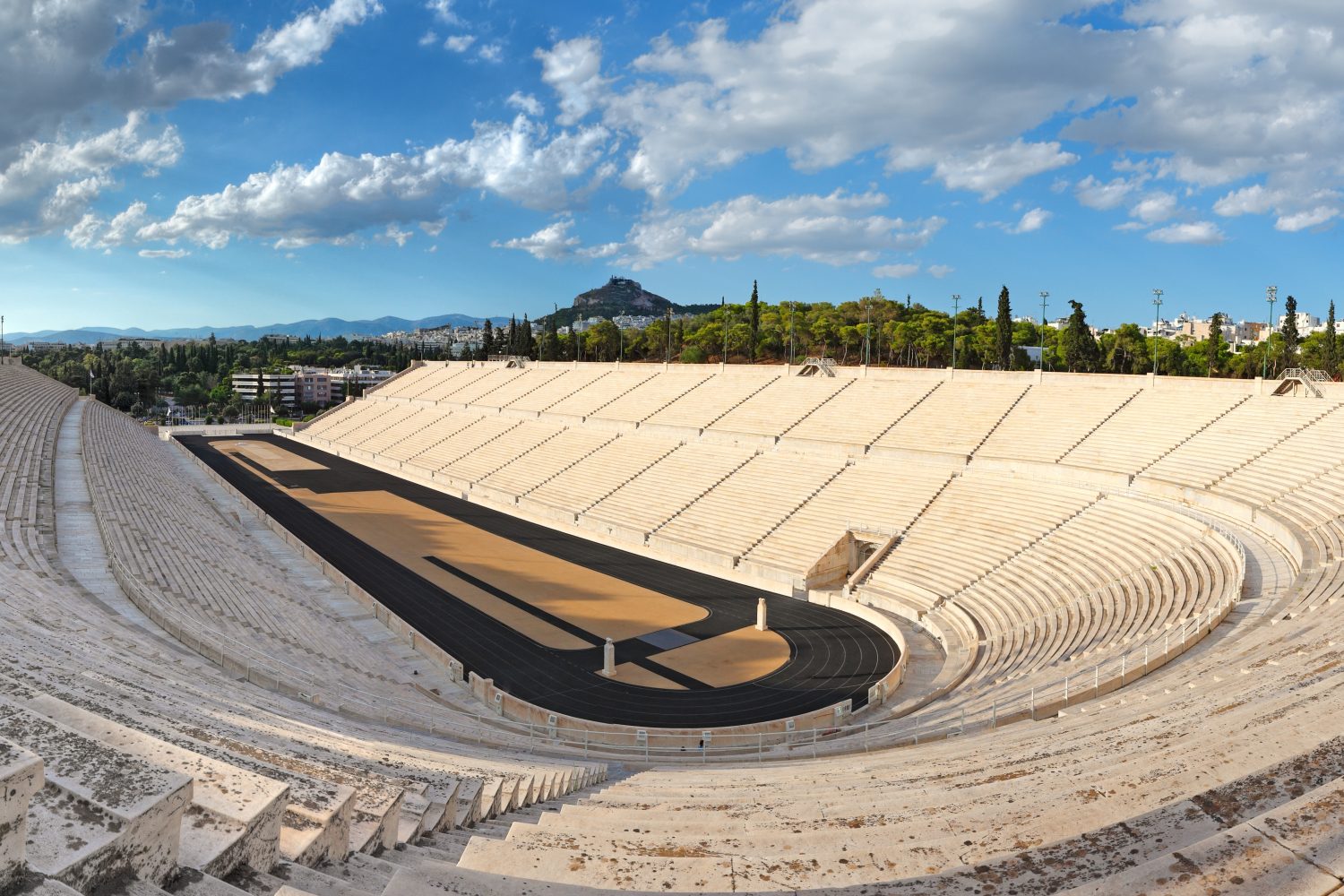
At the 1908 Summer Olympics, the Grand Duchy of Finland competed separately from the Russian Empire. However, they were not allowed to display the Finnish Flag during the games, leading to feelings of discontent among the Finnish people. Additionally, in the Men’s 400 meters, the American winner, John Carpenter, was disqualified from the race for blocking a British athlete, Wyndham Halswelle. The maneuver he used to block Halswelle was legal under American rules, but illegal under British rules. Since the 1908 Summer Olympics were held in London, the judges used British rules when making the decision.
A second final race was ordered to take place, barring Carpenter from joining. However, the other two finalists, William Robbins, and John Taylor, were also U.S. athletes and refused to compete to protest the judges’ decision against Carpenter. Halswelle, as the only participant, won the medal and was the only medalist for that year’s race, making it the only walkover victory in Olympic history.
1912 Summer Olympics Controversies
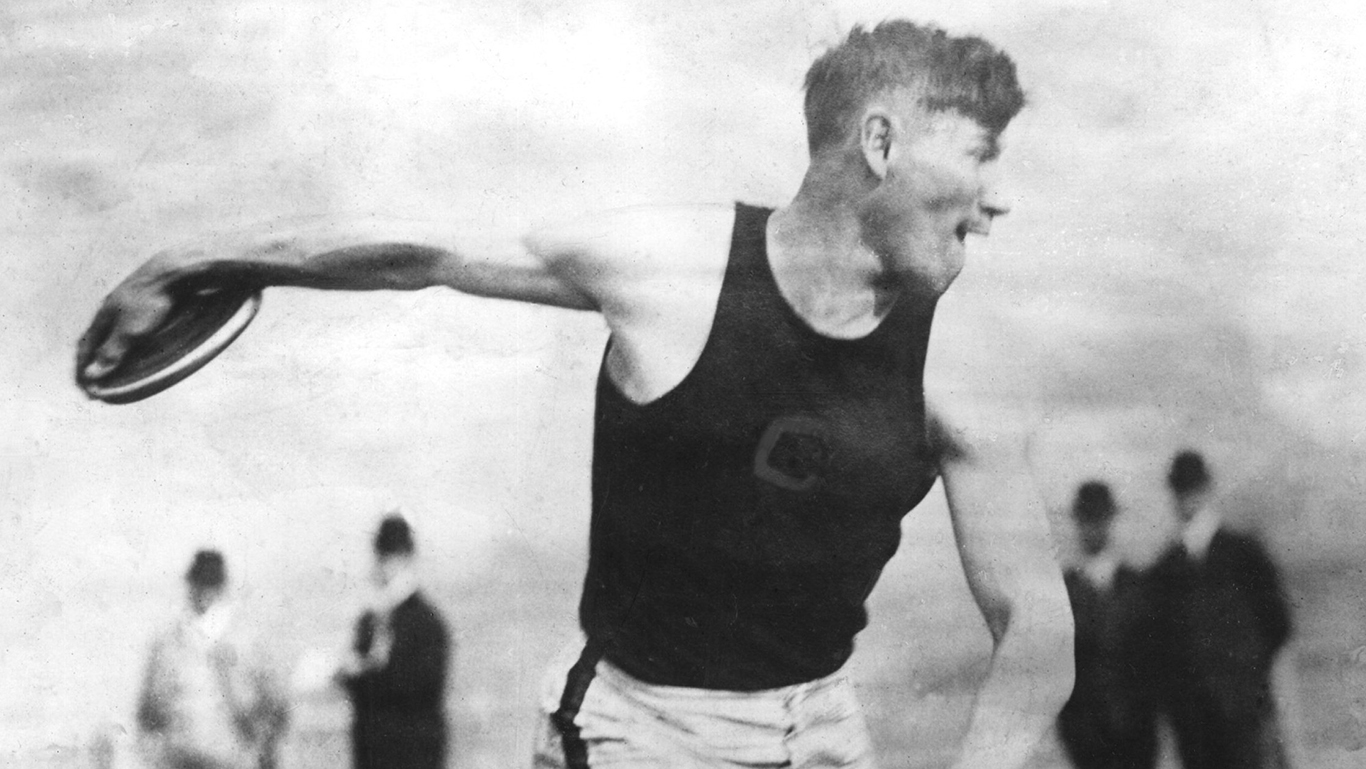
American footballer and athlete Jim Thorpe (1888 - 1953) competing for Carlisle Indian Industrial School at the US Olympic trials in Celtic Park, New York, 18th May 1912. (Photo by Topical Press Agency/Getty Images)
An American athlete named Jim Thorpe was stripped of his decathlon and pentathlon gold medals after the committee learned that he played professional minor league baseball three years earlier. Since professional athletes at the time were banned from entering the Olympics, they disqualified him from the events and took the medals from him. In solidarity, the silver medalist, Hugo Wieslander, refused to accept the gold medals when they were offered to him. 30 years after Thorpe’s death, the medals were restored to his children.
1916 Summer Olympics Controversies

The only notable controversy is that the 1916 Summer Olympics were canceled. Initially, the Games were to be held in Berlin, Germany. However, due to the outbreak of World War I, they were canceled.
1920 Summer Olympics

Initially, the city of Budapest was selected over Amsterdam and Lyon to host the 1920 Summer Olympics. However, the Austro-Hungarian Empire had been a German ally in World War I. So, the French-dominated International Olympic Committee transferred the games to Antwerp, Belgium in 1919. Additionally, Austria, Bulgaria, Germany, Hungary, and Turkey were not invited to the Games at all as the successor states of the Central Powers of World War I.
1924 Summer Olympics Controversies

Germany was once again not invited to the Summer Olympics in 1924 as a successor state of the Central Powers. However, Austria, Bulgaria, Hungary, and Turkey were permitted to join.
1932 Summer Olympics Controversies

Nine-time Finnish Olympic gold-medalist Paavo Nurmi was found to be a professional athlete and banned from running in the 1932 Summer Olympics. The move to ban him was mainly orchestrated by the Swedish officials who made up the core of the International Olympic Committee’s bureaucracy at the time. However, Nurmi traveled to Los Angeles anyway and trained at the Olympic Village despite not being invited to compete.
Additionally, after winning the Silver Medal in Equestrian Dressage, Swedish rider, Bertil Sandstrom was demoted to last place as he was found to be clicking his horse to win encouragement. He claimed that the sound came from a creaking saddle.
1936 Summer Olympics Controversies
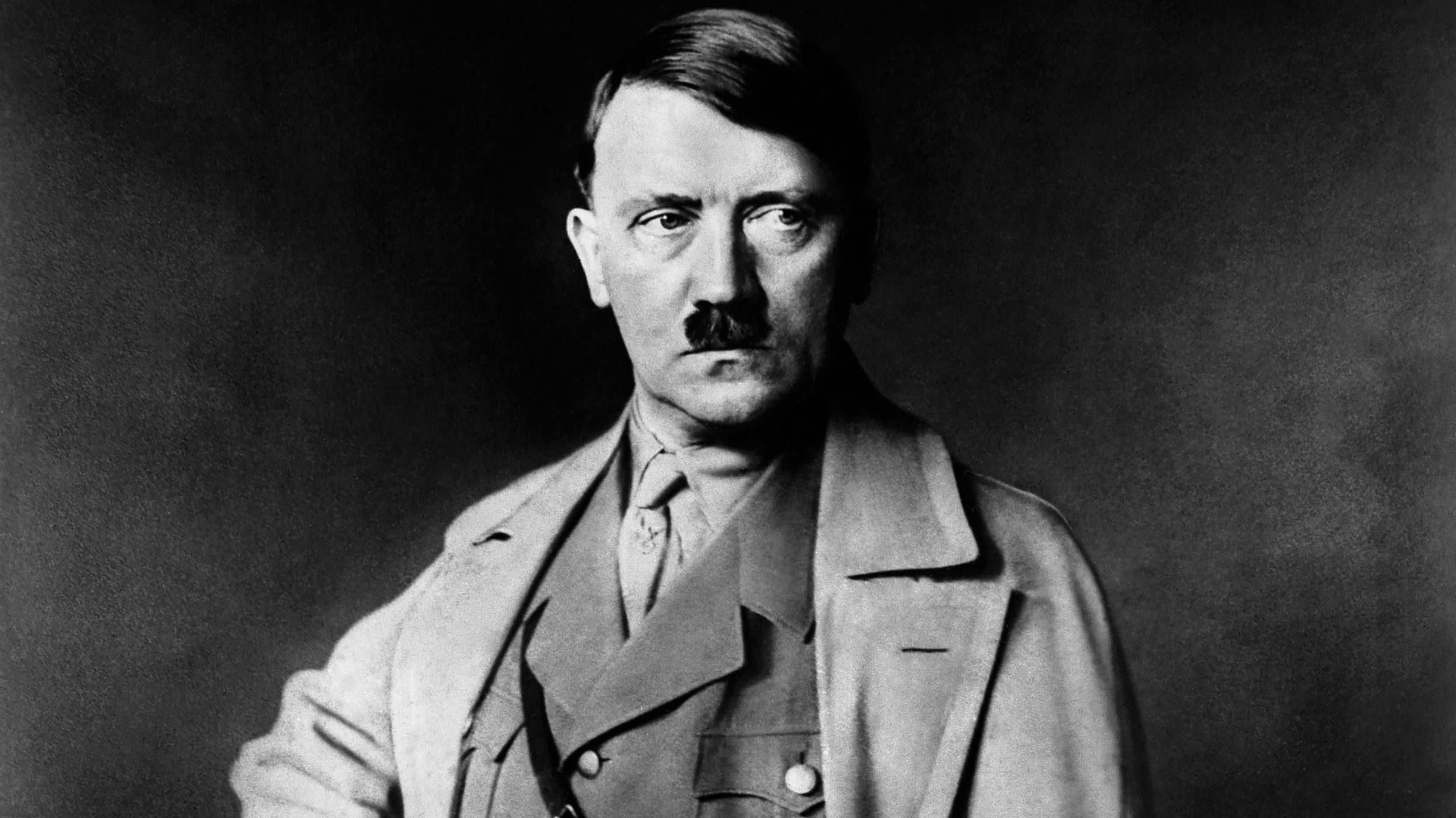
The German capital city of Berlin was chosen to host the Olympic Games. However, due to Hitler’s rise to power, the event became deeply entangled in Nazi politics. Hitler regarded the 1936 Games as “his” Olympics and sought to use the Games as a propaganda tool to show the prowess of post-WWI Germany. This led to several prominent politicians and organizations calling for a boycott of the Summer Olympics. Other detractors called for the event to be relocated. In America, there was considerable debate about boycotting the 1936 Games.
One of the leading advocates for an American boycott, Ernest Lee Jahncke, an athlete and son of a German immigrant, was ousted from the IOC for his views. The Popular Front government of the Second Spanish Republic decided to boycott the Berlin Games entirely and organized the People’s Olympiad with other labor and socialist groups worldwide. However, the event was canceled due to the outbreak of the Spanish Civil War.
Due to the Memelland/Klaipeda regional controversy, Lithuania was not invited to the Games.
1936 Summer Olympics Controveries (Con’t.)
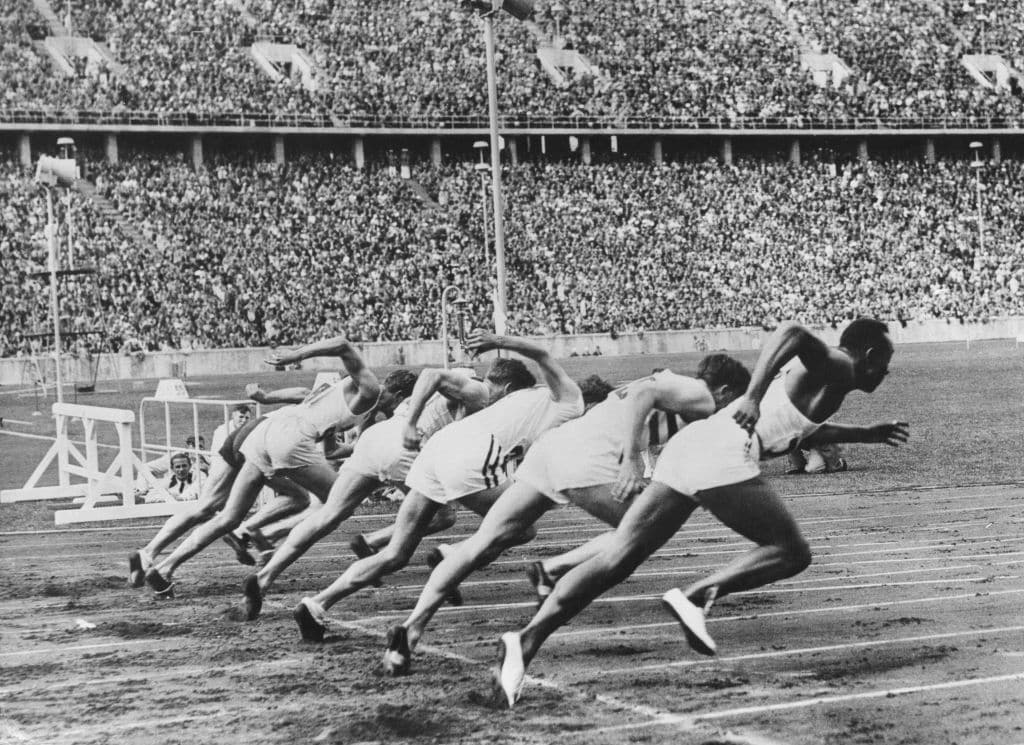
There was international concern surrounding the German National Socialists’ ideology of racial superiority and how it could applied to an international event like the Olympics. Several record-holding German athletes were excluded from competing due to being considered “racially undesirable” and only one Jewish athlete competed on the German team. Additionally, Hitler refused to shake hands with American long-jump winner, Jesse Owens, which has been interpreted as a snub of an African American. However, many scholars have noted that Hitler did not attend any medal presentations after the first day as he only wished to shake hands with German winners.
The Irish Olympic Council boycotted the Games because the IAAF had expelled the National Athletic and Cycling Association for refusing to restrict itself to the Irish Free State instead of the entire island. In more cycling news, German athlete Toni Merkens fouled a Dutch athlete and was only fined, and allowed to keep the gold medal instead of being disqualified.
In one of the football (soccer) quarter-finals, Peru beat Austria 4–2, but Austria advanced to the next round under very controversial circumstances. Peru and Colombia then left Germany in protest.
French and Canadian Olympians gave what appeared to be a Nazi salute at the opening ceremony. However, it has been noted that this may have been the Olympic salute as they are similar, both being based on the Roman salute.
1940 and 1944 Summer Olympics

The 1940 Summer Olympics were meant to take place in Tokyo, Japan, but were canceled due to the outbreak of the Second Sino-Japanese War. Japan abandoned its support for the 1940 Games in 1938 and the Games were then awarded to Helsinki, Finland. However, due to the outbreak of the Winter War, they were again canceled. They were then suspended indefinitely due to World War II.
1948 Summer Olympics Controversies
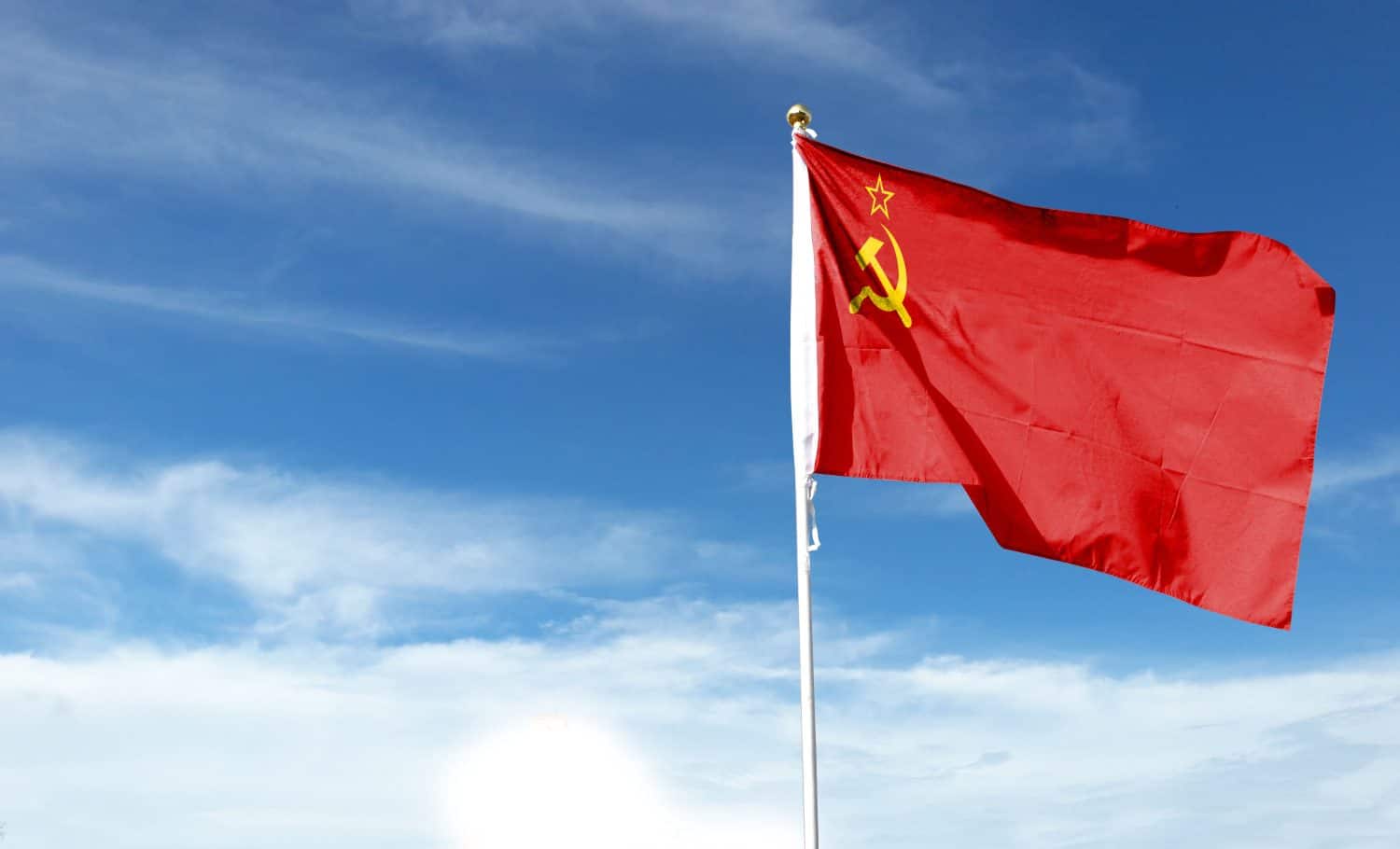
The two major Axis Powers of World War II, Germany and Japan, were suspended from the Olympics. However, Italy was allowed to compete despite being a German ally. German and Japanese participants were once again allowed to enter starting with the 1952 Olympics. Additionally, the Soviet Union was invited but chose not to send athletes, and instead, sent observers to prepare for the 1952 Games.
1956 Summer Olympics Controversies

Eight countries boycotted the 1956 Summer Olympics for various reasons. Cambodia, Egypt, Iraq, and Lebanon announced they would not participate due to the Suez Crisis. The Netherlands, Switzerland, and Spain withdrew to protest the Soviet Union’s invasion of Hungary during the 1956 Hungarian Revolution due to Soviet presence at the Games. The People’s Republic of China boycotted the event because the Republic of China (Taiwan) was allowed to compete independently under the name Formosa.
At the Games themselves, political tensions between the Soviet Union and Hungary came to blows when the two countries’ teams met in water polo. The players became increasingly violent towards one another during the match. Spectators were prevented from rioting by the sudden arrival of the police.
The Eastern Bloc had instituted state-sponsored full-time amateur athletes, eroding the notion of the amateur-focused Olympics. The Soviet Union entered teams of athletes who were all nominally students, soldiers, or working in a profession, but many were paid by the state to train on a full-time basis, putting the self-financed athletes in the Western countries at a disadvantage.
Due to quarantine issues, the equestrian events this year were held in Stockholm, Sweden.
1964 Summer Olympics Controversies
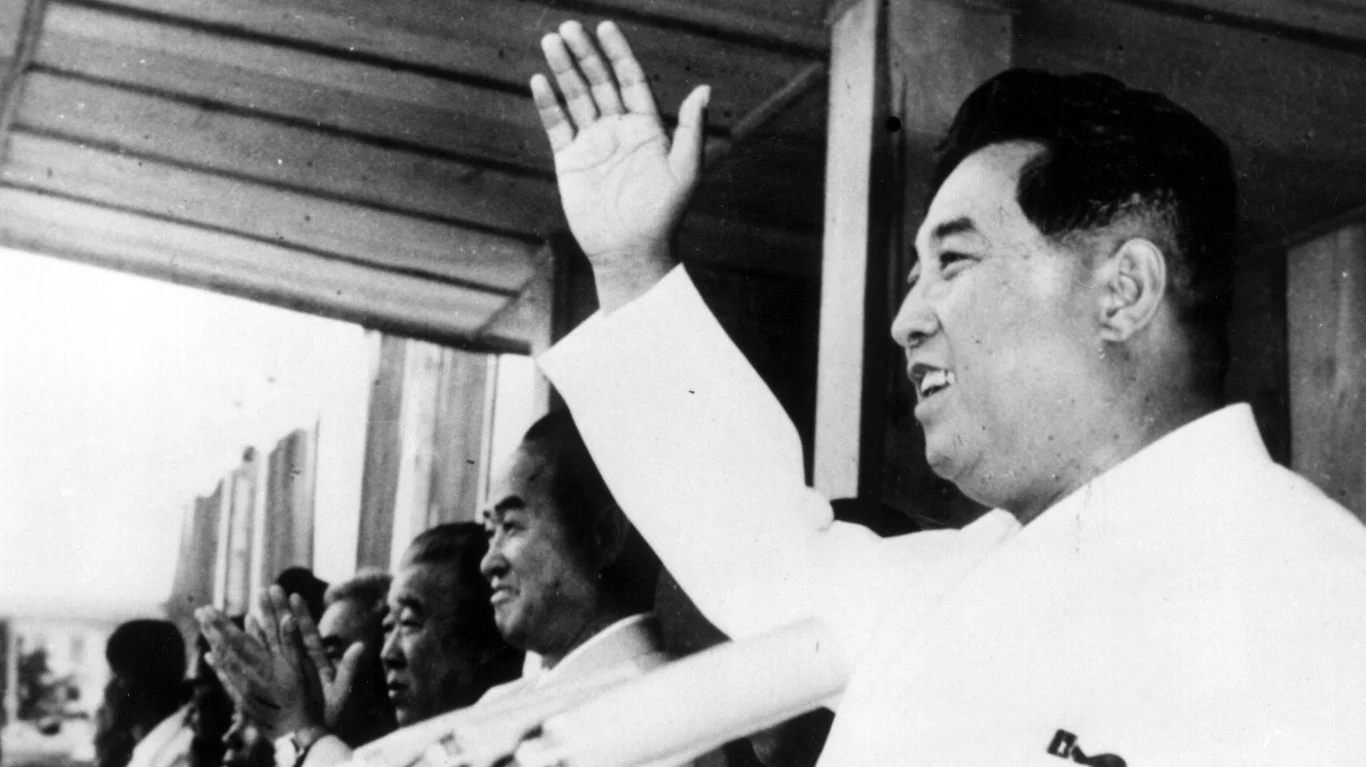
Indonesia and North Korea withdrew after the IOC decided to abandon teams that took part in the 1963 Games of the New Emerging Forces and due to the Indonesia-Malaysia Confrontation. South Africa was also suspended from the Olympics due to its apartheid policy. This ban would not be lifted until 1992.
1968 Summer Olympics Controversies
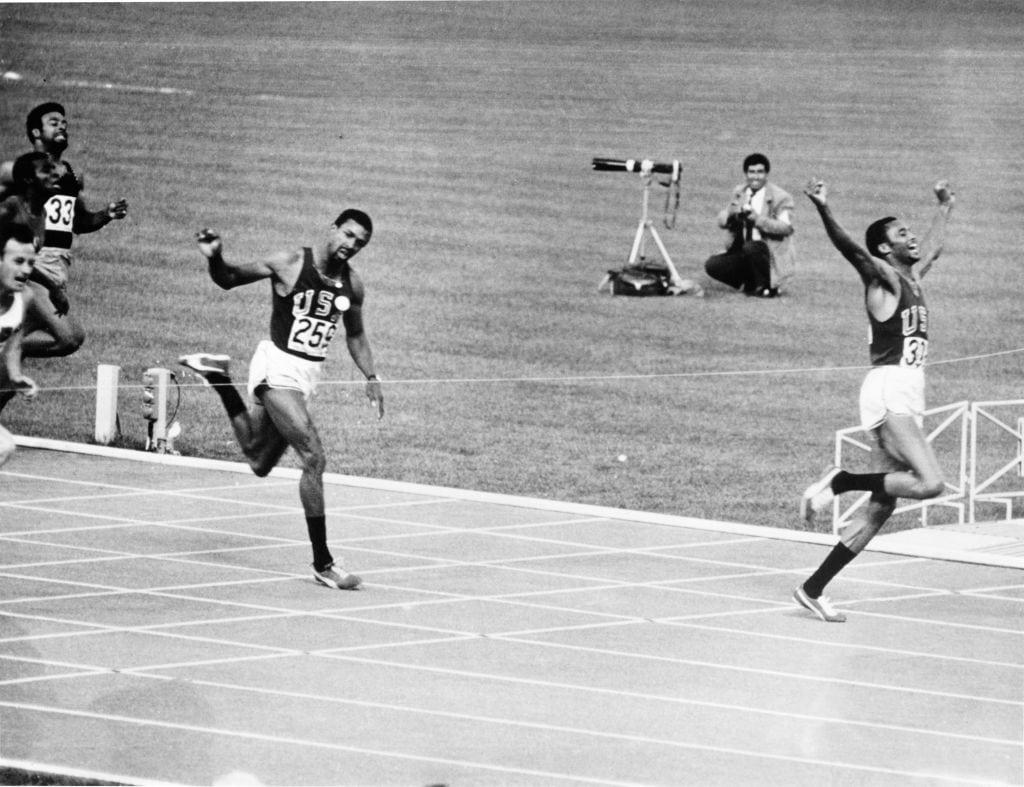
Tommie Smith and John Carlos, two black athletes who finished the men’s 200-meter race first and third respectively performed the “Power to the People” salute during the United States National Anthem. Peter Norman, a white Australian who finished in second place, wore a human rights badge in solidarity. He faced heavy criticism for this when returning to Australia. George Foreman, an Olympic heavyweight boxing champion, waved the American flag and became regarded as an outcast by the Black community for years.
Věra Čáslavská protested the Soviet-led invasion of Czechoslovakia and the controversial decisions made by the judges on the Balance Beam and Floor by turning her head down and away from the Soviet Flag during the anthem. She was considered a hero by the Czechoslovak people, but ostracized by the Soviet-dominated government.
Students in Mexico City tried to make use of the media attention for their country to protest the authoritarian government of Mexico, which led to the Tlatelolco Massacre just ten days before the Games began.
1972 Summer Olympics Controversies

The Munich Massacre at the 1972 Summer Olympics is by far the greatest controversy and tragedy of the year. Rhodesia was banned from participating in the Olympics as a result of a 36 to 31 vote by the IOC held just four days before the opening ceremonies. African countries had threatened to boycott the Munich Games if the white-minority-ruled regime was allowed to send a team.
In a controversial game, the U.S. basketball team appeared to win the gold medal game, but the final three seconds were replayed three times until the Soviets won.
The Forgotten Salute, a Black Power salute unique to the 1972 Summer Olympics, was performed at these games.
At the end of the Men’s Marathon, a German impostor entered the stadium to the cheers of the crowd ahead of the actual winner, Frank Shorter. Additionally, in the Men’s field hockey final, Michael Krause’s goal in the 60th minute of the game gave the hosting West German team a 1–0 victory over the defending champion, Pakistan, who felt that the goal had been pre-planned and was not valid.
1976 Summer Olympics Controversies

In a protest against the New Zealand national rugby union team’s 1976 tour of South Africa, which was controversial due to South Africa’s apartheid policies, Afghanistan, Albania, El Salvador, Guyana, Iraq, Sri Lanka, Syria, and Tanzania led a boycott of 22 African nations after the IOC refused to ban New Zealand from participating. Additionally, Canada refused to allow Taiwan’s team into the country as they did not recognize Taiwan as a nation. They eventually agreed to allow them to compete as long as they did not compete under the name or Flag of Taiwan, which led to Taiwan boycotting the Games. The People’s Republic of China continued to boycott the Olympics to protest the IOC’s refusal to recognize it as the sole representative of China.
Only 92 countries participated in the, the lowest number since the 1960 Rome Games where only 80 countries participated.
Soviet modern pentathlete Boris Onischenko was found to have used an épée with a pushbutton on the pommel that would cause the electronic scoring system to register a hit even if he had not hit the target area of the opponent. The entire team was disqualified.
Quebec also incurred $1.5 million in debt which they did not fully pay off until 2006.
1980 Summer Olympics Controversies
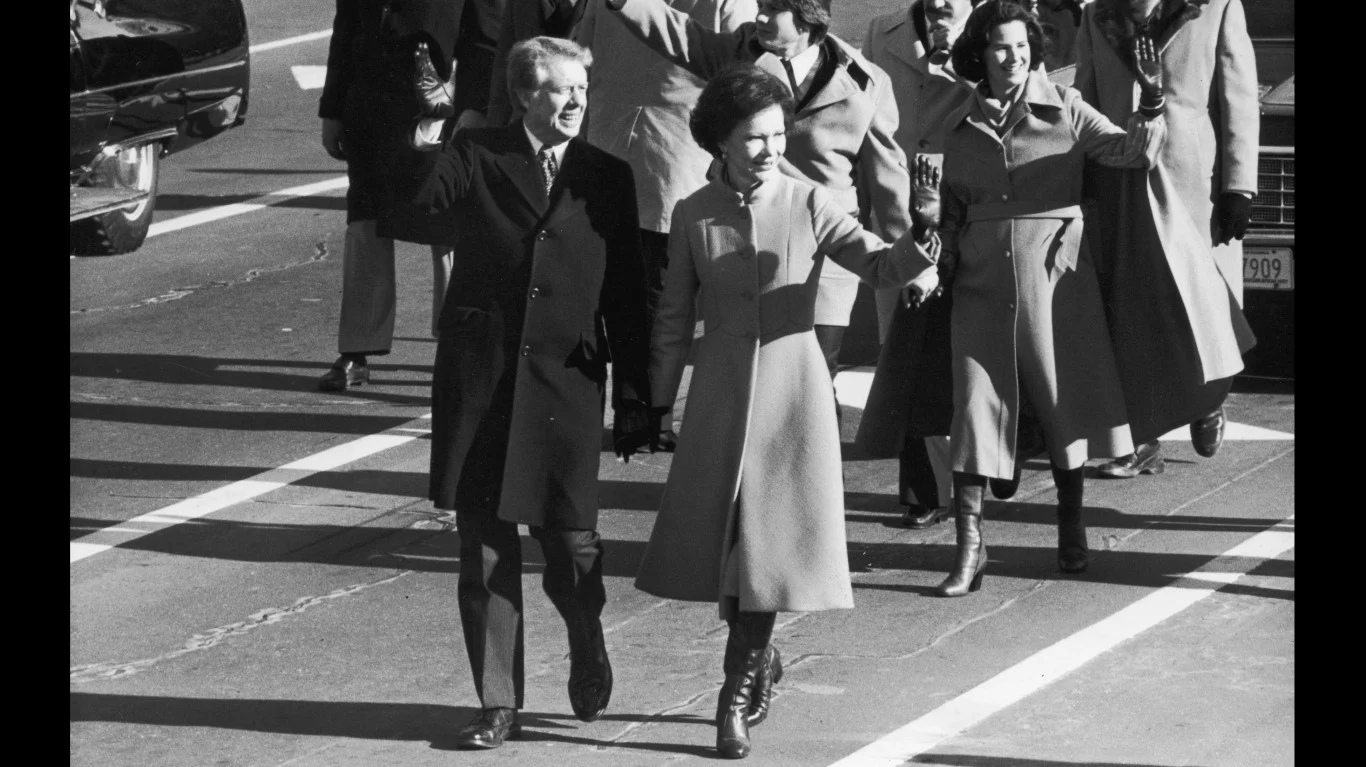
U.S. President Jimmy Carter instigated a boycott of the Games to protest the Soviet invasion of Afghanistan. Many nations refused to participate in the games. However, it’s unclear how many of them withdrew solely because of the boycott or because of financial difficulties, using the boycott to save face. Only 80 countries participated this year.
A 1989 report by the Australian Senate claimed that “there is hardly a medal winner at the Moscow Games, certainly not a gold medal winner… who is not on one sort of drug or another: usually several kinds.” This was also the first event where blood doping was documented. A runner was infused with two units of blood before winning medals in the 5,000 meter and 10,000 meter.
Polish gold medalist pole vaulter, Władysław Kozakiewicz showed an obscene bras d’honneur gesture in all four directions to the jeering Soviet public. This caused an international scandal and almost lost him the medal.
There were numerous instances and accusations of Soviet officials using their authority to negate marks by opponents to the point where the IAAF officials felt they needed to look over the officials’ shoulders to try and keep the events fair. There were also reports of opening the stadium gates to advantage Soviet athletes and causing disturbances to opposing athletes.
1984 Summer Olympics Controversies

The Soviet Union and fourteen of its allies boycotted the 1984 Games held in Los Angeles, stating a lack of security for their athletes as the official reason. However, it is widely regarded as a response to the U.S.-led boycott of the Moscow Games four years earlier. For different reasons, Iran and Libya also boycotted the games.
The men’s light heavyweight boxing match ended in controversy when a Yugoslavian referee disqualified a dominant fighter.
1988 Summer Olympics Controversies
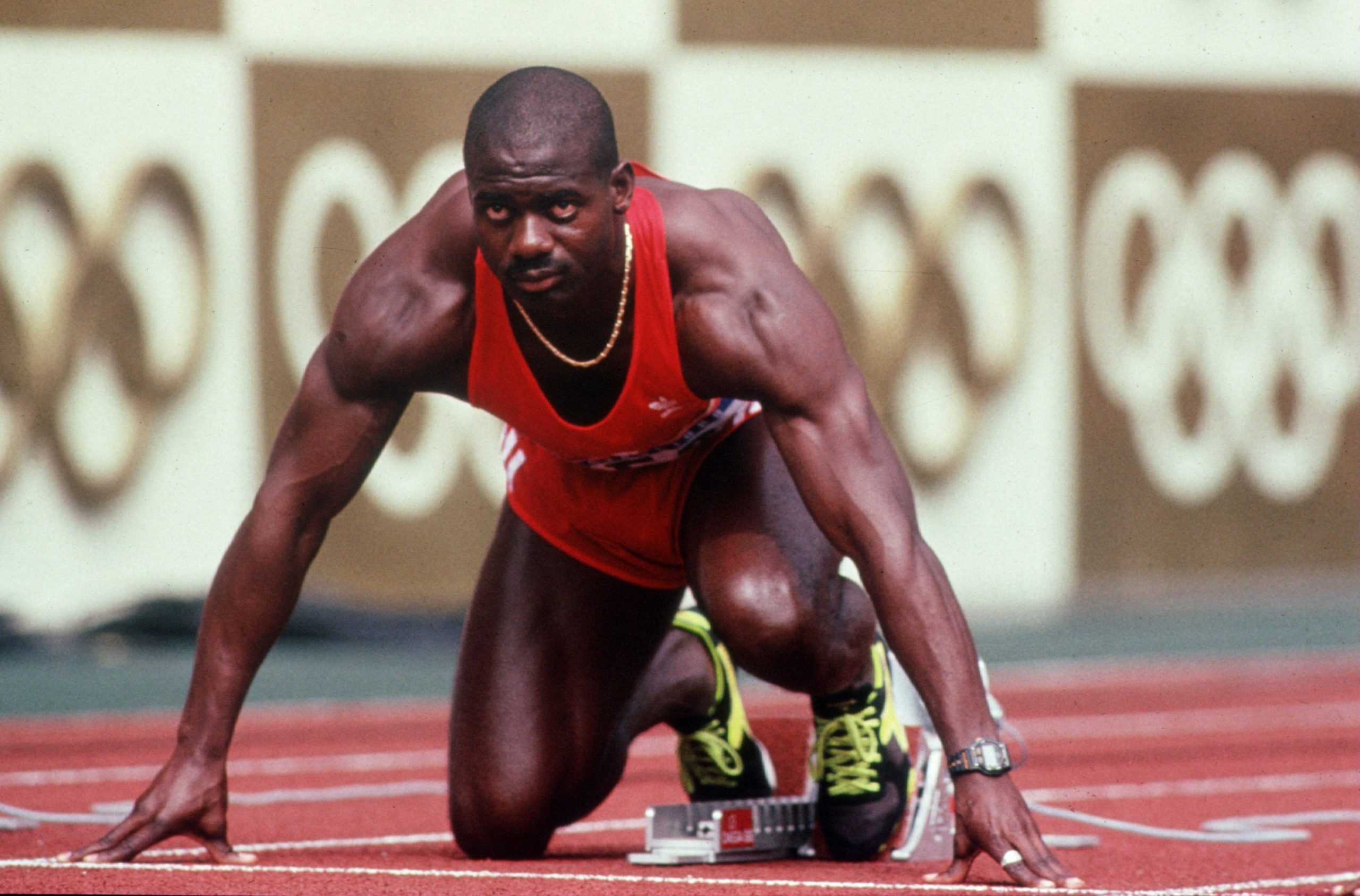
The Games were boycotted by North Korea, and its allies. Additionally, Cuba, Ethiopia, Albania, and Seychelles did not respond to the invitations sent by the IOC. Nicaragua did not participate due to athletic and financial considerations. Madagascar was expected to compete but withdrew at the last minute due to financial concerns.
Canadian sprinter, Ben Johnson, was stripped of his gold medal for the 100 meters. He tested positive for stanozolol after the event.
In a highly controversial 3–2 judges’ decision, Si-Hun Park defeated Roy Jones Jr. despite Jones pummeling Park for three straight rounds and landing 86 punches compared to Park’s 32. All three judges who voted against Jones were suspended. However, the gold medal remains with Park.
American diver Greg Louganis suffered a concussion when he hit his head on the springboard during the preliminary rounds. Despite this, he continued to compete and earned the single highest qualifying round for his next dive. He repeated the dive during the finals and earned the gold medal by a margin of 25 points. Louganis had also been diagnosed with HIV six months before the Games. This led some to question his choice to participate.
1992 Summer Olympics Controversies
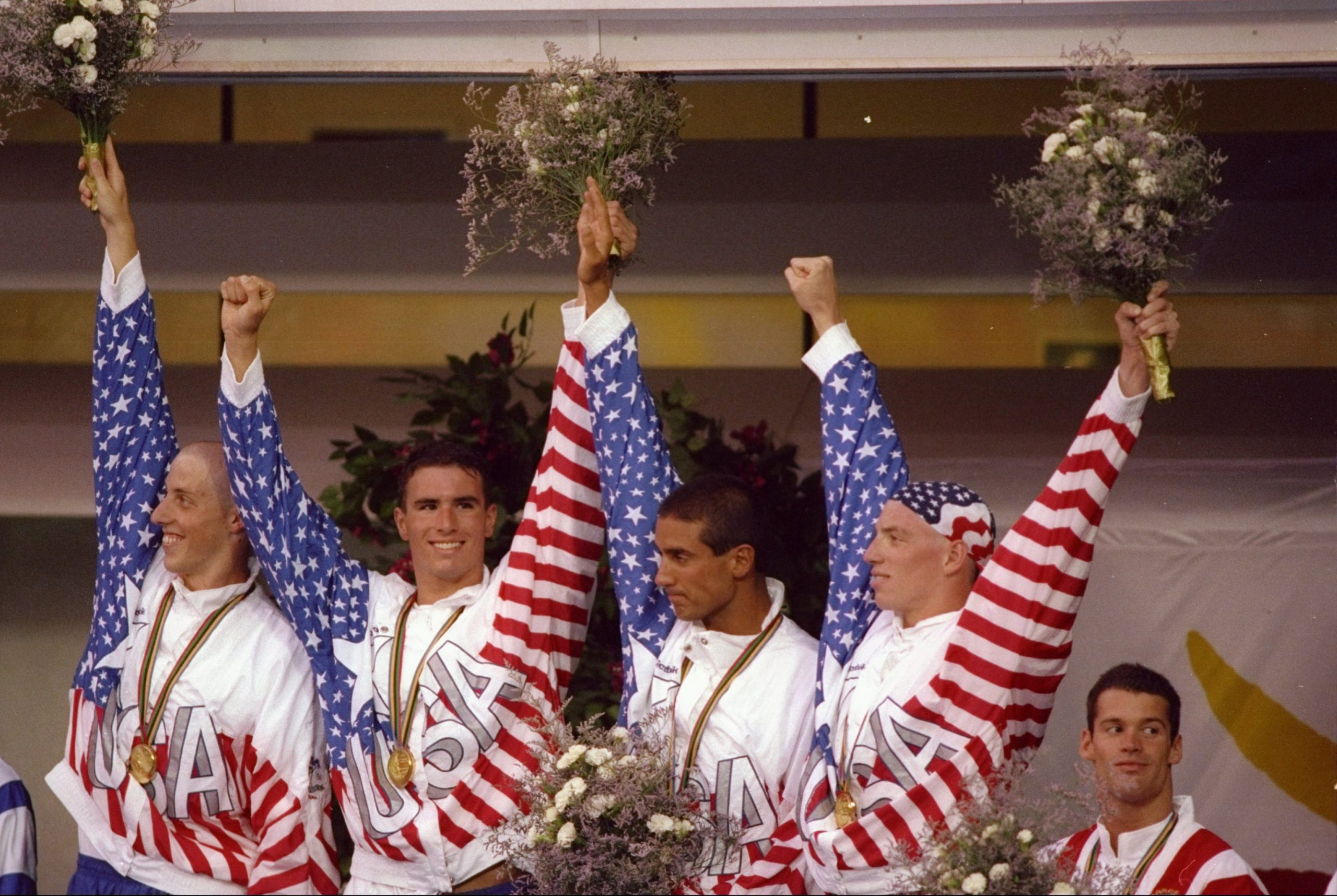
31 Jul 1992: Members of the US 4X100 medley team celebrate after winning the gold medal at the Olympic Games in Barcelona, Spain. Mandatory Credit: Gary Newkirk /Allsport
Three British athletes were sent home after testing positive for anabolic steroids and Clenbuterol. Russian weightlifter Ibragim Samadov was disqualified for protesting after he refused to accept the bronze medal. He was later banned for life. Moroccan athlete Kahlid Skah was disqualified after he and his opponent, Richard Chelimo, lapped another Moroccan athlete who stayed with the leaders and slowed down Chelimo. An appeal by the Moroccan team had his medal restored.
1996 Summer Olympics
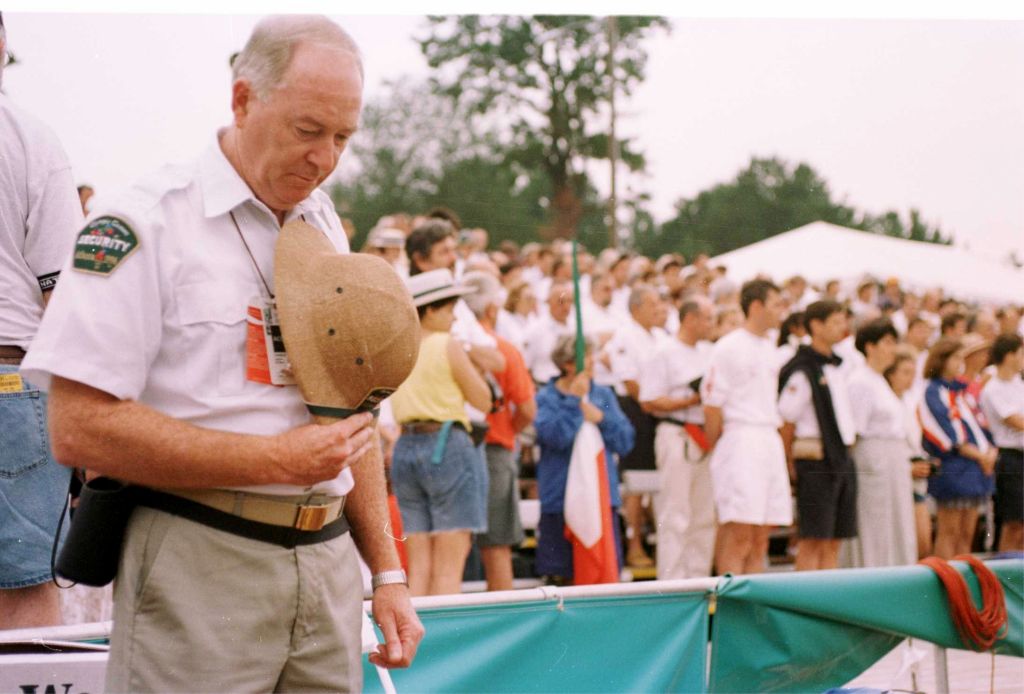
The Centennial Olympic Park Bombing was a massive tragedy that marred the Games. The Philippines described a gold medal match as “robbery.” News ouetlets claimed that the judges were pressing buttons on their electronic scoring equipment for the wrong boxer.
2000 Summer Olympics
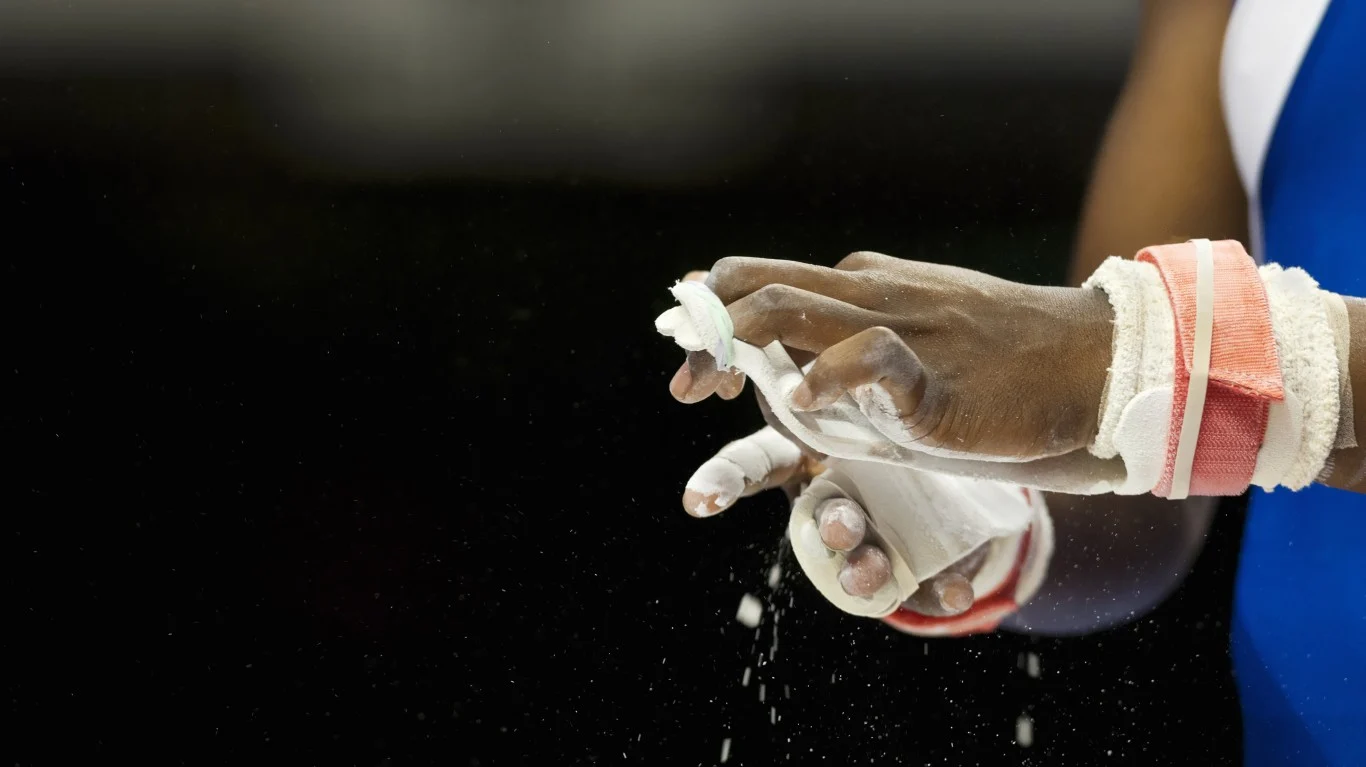
A United States Congressional resolution opposed China’s efforts to be selected as the host country for the 2000 Summer Olympics.
American track athlete Marion Jones was stripped of five medals after admitting to anabolic steroid use.
The vault in the Women’s artistic gymnastics competition was set 5 cm too low. It caused several athletes to make unusual mistakes, such as missing the vault entirely, and caused at least one injury.
Romanian athlete, Andreea Răducan, was stripped of a medal after testing positive for pseudoephedrine, which was banned at the time. The doctor who prescribed it to her was suspended for four years.
Chinese gymnast Fangxiao Dong was found to be only 14 years old at the time of competing.
2004 Summer Olympics Controversies

Judging errors and miscalculation of points in two of the three events led to a revision in the gymnastics Code of Points.
Brazilian runner Vanderlei de Lima was attacked by Neil Horan and dragged into the crowd with less than 10 km to go in the Men’s Marathon. He recovered and ultimately won the bronze. Later, he was given the Pierre de Coubertin medal for sportsmanship. He had been in first place when he was attacked.
Hungarian fencing official Joszef Hidasi was suspended for two years. He committed six errors in favor of Italy during the gold-medal match. This denied the Chinese opponent the rightfully won gold medal.
A Canadian men’s rowing pair was disqualified after crossing into the lane of the South African team. The lane cross impeded their progress.
In the women’s 100-meter hurdles, a sprinter stepped on the first hurdle and fell to the ground, taking a Russian sprinter down with her. Additionally, an Iranian judoka was disqualified after being found to be overweight before the judo bout. He had gone on an eating binge in protest the night before. Pelle Svensson was threatened with death after he intervened on a judge being bribed in a wrestling match.
2008 Summer Olympics Controversies

Players for the men’s basketball teams posed for a newspaper advertisement where they were making racist gestures against Asian people.
A Swedish wrestler put his medal on the floor to protest his loss.
Two more Chinese athletes were questioned about their ages due to their youthful appearances.
Norway was put through the Handball semi-finals although the ball had not fully crossed the line before time was called.
A Cuban taekwondo competitor was banned for life from all international taekwondo competitions. He kicked a referee in the face and punched another official.
China was criticized for its state-run athlete training program.
50 gold medals were stripped from athletes for doping.
2012 Summer Olympics Controversies

The North Korean Women’s football (soccer) team delayed their game against Colombia after the players were introduced on the jumbo screen with the Flag of South Korea.
A Greek field athlete and a Swiss footballer (soccer player) were expelled after making racially insensitive comments on social media.
A South Korean fencer lost the semifinal match after a timekeeping error allowed the German fencer to score the winning point before time expired.
Japan was promoted to a silver medal after successfully appealing Kohei Uchimura’s pommel horse performance.
A Chinese fighter won a boxing match after the Thai fighter was hit with a two-point penalty for an unclear offense with 9 seconds left in the match.
A time-wasting call was lodged against Canada in football (soccer), followed by a handball in the penalty box. The American team won the game in extra time.
Eight players from the badminton women’s doubles were ejected for playing to lose. They intentionally threw matches to manipulate the draw for the knockout stage.
A Japanese boxer floored another boxer from Azerbaijan six times. The referee never scored a count on any of the knockdowns and let the fight continue. The fight was scored in the Azerbaijani boxer’s favor but was overturned by the governing body for Olympic boxing.
29 medals were stripped for doping violations.
2016 Summer Olympics Controversies

Russia was caught in a doping scandal and their participation was restricted.
A Thai women’s volleyball team was given two red cards during the final set. The case was declined for review.
An Egyptian judoka refused to shake hands with or bow to his opponent after being defeated by an Israeli judoka.
An Iranian athlete broke a world record during snatch weightlifting but was later disqualified in the clean and jerk stage.
Nine Australian athletes had their passports seized by the Brazilian police. They were fined after it was revealed that they had falsified their credentials to watch a basketball game between Serbia and Australia.
Four American swimmers allegedly vandalized a gas station bathroom. They were forced to pay for the damage by two security guards. The guards brandished a gun at them before a translator arrived.
A Mongolian athlete received a penalty point for celebrating before the end of a match. His opponent won because of it. The coaches proceeded to strip in front of the judges on the mat. They also threw a shoe at the judges’ table, resulting in a second penalty point.
There was significant controversy around the new scoring system in boxing. Additionally, a Russian boxer was stripped of his silver medal after testing positive for tuaminoheptane.
2020 Summer Olympics Controversies

The Games were postponed for the first time and held in July and August 2021.
An Algerian judoka was sent home for refusing to compete against an Israeli opponent.
Oceania’s Rhythmic Gymnastics Qualifications were found to have been conducted with severe breaches. This resulted in a change of ranking for the Olympic Nomination and Selection.
2024 Summer Olympics Controversies (So Far)
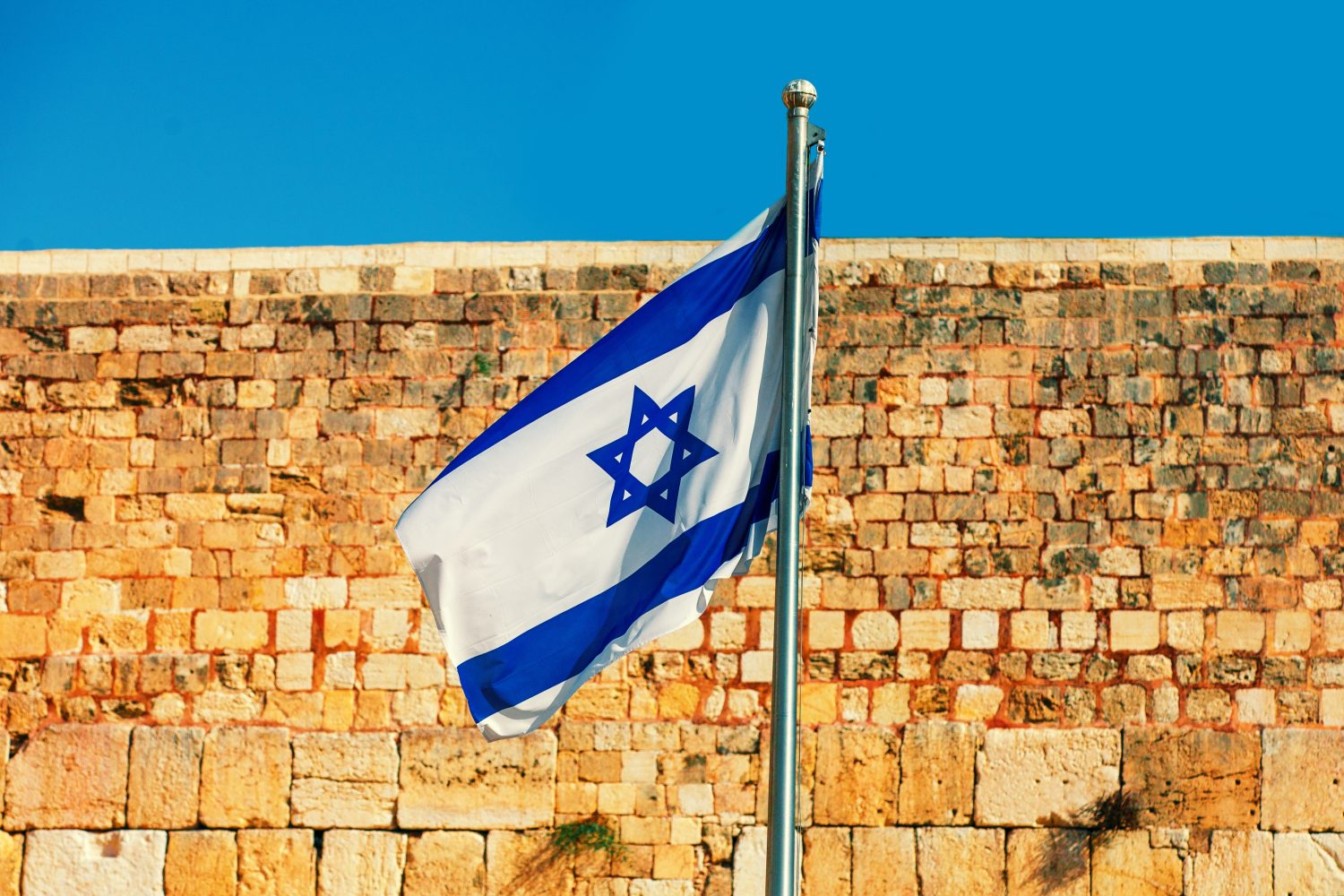
Palestinian sports organizations and other Arab organizations have called for sanctions to be imposed against Israel.